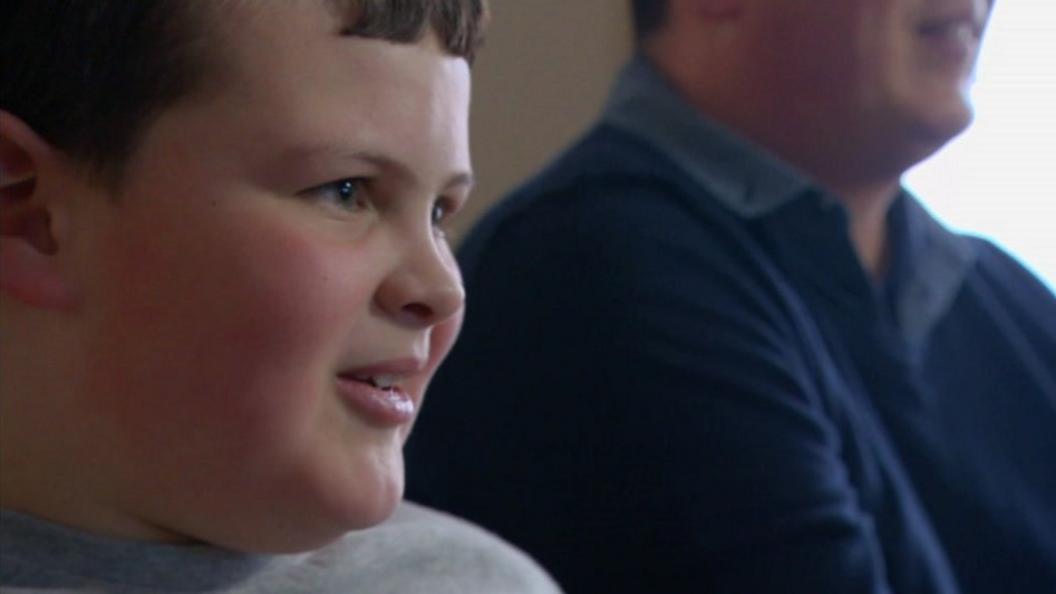Patients face autism referral and assessment 'lottery'
- Published

Children and adults may be missing out on educational support if there are delays
Children and adults in England can face a wait of more than two years for an autism assessment, a Freedom of Information request has revealed.
National guidelines state that the process of diagnosis should start within three months of being referred.
But a request for data by the Lib Dems has revealed what campaigners describe as a "postcode lottery".
The government said it would start collecting and publishing waiting times.
The National Autistic Society said people were missing out on educational, health and social support as a result of lengthy waits to be assessed.
The longest waiting times between referral and the start of an assessment in 2016-17 were:
848 days for an adult and 799 days for a child in Berkshire Healthcare NHS Foundation Trust
528 days for an adult and 535 days for a child at the South West Yorkshire Partnership NHS Foundation Trust
428 days for an adult and 637 days for a child at North Staffordshire Combined Healthcare NHS Trust
The FoI request also revealed it could take several years to finally get an autism diagnosis.
Autism is a lifelong condition that affects how people see the world and interact with others.
An early diagnosis can be vital in helping families and schools understand a child's behaviour, as well as putting support in place to help them cope.
But despite guidelines that autism assessments should start within three months of referral to specialist, the Freedom of Information request found a wide variation in waiting times across England.
'Scandalous'
Liberal Democrat MP and former Health Minister Norman Lamb, who requested the information, said the current system was a lottery, depending on where patients lived and whether they could pay for a private assessment.
"These scandalous waiting times are happening despite clear evidence that early diagnosis and intervention can make a massive difference to people's life chances," he said.

Experts say children are more likely to be excluded from school if they are left undiagnosed
"We know there can be complex cases which require several follow-up appointments with different specialists - but there is no excuse for the widespread delays we are seeing all around the country."
Not every trust responded to the Freedom of Information request - just 27 out of 54, so this is just a snapshot.
Twenty-two out of more than 150 Clinical Commissioning Groups (CCGs) - local NHS bodies that plan and organise health care services - also provided data.
But Jane Harris, of the National Autistic Society, said it was likely there were many more examples of long waiting times for both referral and diagnosis, which could have a profound impact on the lives of autistic children and adults.
"Undiagnosed children could end up not getting the support they need at school," she said.
"We know autistic children are far, far more likely to be excluded from school, sometimes for months but also sometimes for years.
"Autistic people are far, far less likely than anyone else - than any other disabled people in fact - to be in work. And partly sometimes that is because people aren't diagnosed."
Publish waiting times
The National Autistic Society believes a shortage of staff, but also local funding priorities, play a part in the long waiting times.
It is calling for the government to make sure local areas are held to account.
From April next year, trusts will have to publish waiting times for referrals - but there is no standard for the time it takes to get an actual diagnosis.
A representative of the Department of Health and Social Care in England said people with autism should receive a timely diagnosis.
"The guidelines on autism are clear - families must start assessment within three months and we expect every part of the NHS to adhere to this," the official said.
And the department said it was working closely with NHS England to help local areas improve the quality and efficiency of care.
- Published24 January 2018

- Published10 July 2017
